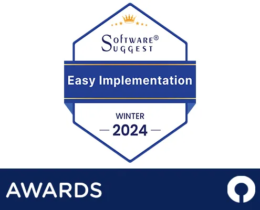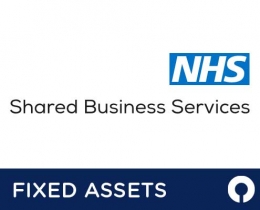Asset Management Compliance: How Asset Management Software Can Help
Asset management software can aid your compliance efforts and help you to remain compliant with all relevant industry regulations in a number of ways, here’s how:

Asset management software can aid your compliance efforts and help you to remain compliant with all relevant industry regulations in a number of ways, here’s how:

In today’s complex business environment, asset management compliance has become a critical concern for organisations and asset managers. Compliance refers to adhering to the regulatory requirements, standards, and internal policies relevant to managing assets effectively. Failure to meet compliance standards can lead to severe consequences, including costly penalties, damage to brand reputation, and even legal liabilities.
However, navigating the regulatory landscape and managing assets while ensuring compliance can be challenging. In this article, we will explore how asset management software can play a pivotal role in achieving and maintaining compliance, helping organisations streamline processes, enhance data accuracy, and improve reporting and auditability.
Asset management compliance encompasses the processes and protocols that organisations follow to manage their assets in line with relevant laws, regulations, and internal guidelines. These assets can include physical assets such as equipment, machinery, and infrastructure, as well as intangible assets like software licences and patents.
Compliance is crucial for asset managers as it ensures that the company operates within the boundaries set by industry regulations and other relevant authorities. Compliance not only protects employees and the company’s operations but also mitigates compliance risk and safeguards against costly penalties resulting from non-compliance.
Internal compliance for asset management refers to an organisation’s adherence to its own internal policies, procedures, and standards related to managing assets efficiently and responsibly. This involves ensuring that employees and stakeholders comply with the company’s asset management guidelines to maintain operational efficiency, mitigate risks, and achieve strategic objectives. On the other hand, external compliance involves adhering to external regulations, laws, and industry standards imposed by government authorities, regulatory bodies, or industry associations. External compliance ensures that the organisation meets legal requirements, protects stakeholders’ interests, and upholds its reputation in the industry. Both internal and external compliance play crucial roles in ensuring proper asset management practices and overall organisational success.
Although the regulatory burden may differ across different organisations, countries and industries, some key regulations for asset management include:
Sarbanes-Oxley: Active in the USA, the purpose of the Sarbanes-Oxley Act is to enhance corporate governance, transparency, and financial reporting accuracy, especially for publicly traded companies.
Organisations encounter several challenges in meeting asset management compliance requirements. These challenges include interpreting complex regulations, tracking evolving standards, managing vast volumes of financial records, and handling manual compliance processes prone to human error.
The consequences of non-compliance can be severe. Aside from financial penalties, organisations risk damage to their brand reputation, loss of customer trust, and potential legal actions. Non-compliance also affects overall operational efficiency and may lead to compliance monitoring processes, such as external audits and internal audits.
Asset management software offers a comprehensive solution to manage assets efficiently throughout their entire lifecycle. From inventory management to preventive maintenance, these tools help organisations streamline asset-related processes.
Asset management software addresses compliance challenges by automating and standardising processes, reducing the human errors inevitable in manual processes, and providing real-time visibility into asset data. It helps companies maintain compliance documentation standards and adapt to any regulatory change swiftly.
Asset management software incorporates features like mobile access, data security, and incident management to ensure compliance with regulatory requirements. It enables asset managers to embed compliance into their business processes, facilitating adherence to consistent baseline protocols.
Other key compliance-boosting features to look out for in asset management software include flexible customisation for creating and managing different books for local, group, and tax purposes. With a range of calculations and modifiable depreciation methods, best-in-class asset management tools provide the functionality and configurability that fixed asset compliance teams need.
Asset management software streamlines compliance processes, allowing organisations to efficiently track assets, monitor consumption, and execute preventive maintenance tasks.
By automating data entry and reconciliation, asset management software improves data accuracy and integrity, providing reliable information for compliance reporting and audits.
Asset management software generates comprehensive reports and audit trails, simplifying compliance reporting and ensuring audit readiness at any given time.
The software provides real-time visibility into asset data, empowering asset managers with the necessary information to ensure compliance at every stage of the asset lifecycle.
Whether hosted on-premises or in the cloud, comprehensive asset management software provides improved data security due to security and encryption features as well as reducing data security risks that are created when information has to move between separate software systems.
Now that we’ve evaluated some of the benefits of fixed asset management software for regulatory compliance, let’s look at some examples of how real organisations have improved the compliance process using FMIS’ asset management tools.
Essex County Fire and Rescue Service, facing the challenge of managing an extensive asset register, sought a comprehensive Fixed Asset Management solution that ensured compliance with IFRS, Component Accounting, and additional standards. FMIS Fixed Assets emerged as the ideal choice due to its ability to structure assets, value components, and provide accurate reporting.
Previously, component accounting presented a complex asset management challenge for the authority. FMIS Fixed Assets helped them identify parent and child assets, allowing for allocation of different useful economic lifespans. This allowed for easier valuation and reporting on assets.
Ultimately, with FMIS’ fixed asset management tool, compliance with all regulatory changes and standards was streamlined for Essex Fire Authority.
Read Essex Fire Authority’s full case study.
Sheffield Hallam University, a leading UK institution with over 30,000 students, faced the challenge of ensuring compliance with the FRS102 standard before year-end. To achieve this, they selected FMIS Fixed Assets as their specialist solution, replacing their existing asset register.
FMIS fixed assets software allowed the university to comply with FRS102 and accommodate component accounting after a recent asset revaluation exercise. It facilitated complete asset information storage, including serial numbers, equipment make and model, and unlimited attachments. The system offered a wide range of reports, meeting the assistant financial accountant’s monthly, year-end, and ad-hoc reporting requirements.
When selecting asset management software for compliance, organisations should consider factors such as the software’s capability to meet industry regulations, its integration with existing systems, and its mobile accessibility for field personnel. Other factors to consider include the vendor’s support package and whether they are available to update the software and provide support when needed; this means that organisations can more easily stay on top of all regulations set in their industry.
For successful implementation, organisations should involve all stakeholders, provide adequate training, and establish clear communication channels. The software’s adoption should be encouraged across the organisation.
It’s important to regularly monitor asset management software performance and ensure that the system stays up-to-date with the latest compliance requirements and security measures. This helps improve compliance and reduce the risk of data breaches.
Asset management compliance is a critical aspect of modern business operations, and organisations must proactively manage it to avoid compliance issues and non-compliance costs. Asset management software serves as a powerful tool for meeting asset management compliance requirements, enhancing overall operational efficiency, and safeguarding an organisation’s reputation. By integrating asset management software into their operations, asset managers can ensure compliance throughout the asset lifecycle, meet regulatory obligations, and drive long-term success in today’s ever-changing regulatory landscape.
Are you looking for a comprehensive solution to effortlessly achieve and maintain asset management compliance? Look no further! FMIS Asset Management Software is here to transform your compliance processes and streamline your operations.
With FMIS, you can navigate the complex regulatory landscape with confidence. Our software offers a wide range of features and capabilities tailored to address compliance challenges faced by asset managers like you. From interpreting complex regulations to enhancing data accuracy and ensuring auditability, FMIS Asset Management Software has got you covered.
Don’t let non-compliance risks burden your organisation. Take the proactive step towards ensuring your company complies with industry regulations, internal policies, and international standards. Safeguard your brand reputation and protect your business from the unexpected costs of penalties by leveraging the power of our asset management tool.
Ready to see how FMIS can revolutionise your regulatory compliance management processes? Get in touch with our expert team today to book a personalised demo and discover firsthand how FMIS can empower you to achieve seamless asset management compliance.



FMIS Ltd
167b John Wilson Business Park
Whitstable
Kent
CT5 3RA
United Kingdom
Phone:+44 (0) 1227 773003
Fax:+44 (0) 1227 773005
Sales:sales@fmis.co.uk
Support:support@fmis.co.uk

 Complete Guide to Fixed Asset Registers
Complete Guide to Fixed Asset Registers| Cookie | Duration | Description |
|---|---|---|
| cookielawinfo-checkbox-advertisement | 1 year | Set by the GDPR Cookie Consent plugin, this cookie is used to record the user consent for the cookies in the "Advertisement" category . |
| cookielawinfo-checkbox-analytics | 11 months | This cookie is set by GDPR Cookie Consent plugin. The cookie is used to store the user consent for the cookies in the category "Analytics". |
| cookielawinfo-checkbox-functional | 11 months | The cookie is set by GDPR cookie consent to record the user consent for the cookies in the category "Functional". |
| cookielawinfo-checkbox-necessary | 11 months | This cookie is set by GDPR Cookie Consent plugin. The cookies is used to store the user consent for the cookies in the category "Necessary". |
| cookielawinfo-checkbox-others | 11 months | This cookie is set by GDPR Cookie Consent plugin. The cookie is used to store the user consent for the cookies in the category "Other. |
| cookielawinfo-checkbox-performance | 11 months | This cookie is set by GDPR Cookie Consent plugin. The cookie is used to store the user consent for the cookies in the category "Performance". |
| CookieLawInfoConsent | 1 year | Records the default button state of the corresponding category & the status of CCPA. It works only in coordination with the primary cookie. |
| PHPSESSID | session | This cookie is native to PHP applications. The cookie is used to store and identify a users' unique session ID for the purpose of managing user session on the website. The cookie is a session cookies and is deleted when all the browser windows are closed. |
| viewed_cookie_policy | 11 months | The cookie is set by the GDPR Cookie Consent plugin and is used to store whether or not user has consented to the use of cookies. It does not store any personal data. |
| Cookie | Duration | Description |
|---|---|---|
| CONSENT | 2 years | YouTube sets this cookie via embedded youtube-videos and registers anonymous statistical data. |
| _ga | 2 years | The _ga cookie, installed by Google Analytics, calculates visitor, session and campaign data and also keeps track of site usage for the site's analytics report. The cookie stores information anonymously and assigns a randomly generated number to recognize unique visitors. |
| _gat_UA-48954022-1 | 1 minute | A variation of the _gat cookie set by Google Analytics and Google Tag Manager to allow website owners to track visitor behaviour and measure site performance. The pattern element in the name contains the unique identity number of the account or website it relates to. |
| _gid | 1 day | Installed by Google Analytics, _gid cookie stores information on how visitors use a website, while also creating an analytics report of the website's performance. Some of the data that are collected include the number of visitors, their source, and the pages they visit anonymously. |
| Cookie | Duration | Description |
|---|---|---|
| VISITOR_INFO1_LIVE | 5 months 27 days | A cookie set by YouTube to measure bandwidth that determines whether the user gets the new or old player interface. |
| YSC | session | YSC cookie is set by Youtube and is used to track the views of embedded videos on Youtube pages. |
| yt-remote-connected-devices | never | YouTube sets this cookie to store the video preferences of the user using embedded YouTube video. |
| yt-remote-device-id | never | YouTube sets this cookie to store the video preferences of the user using embedded YouTube video. |
